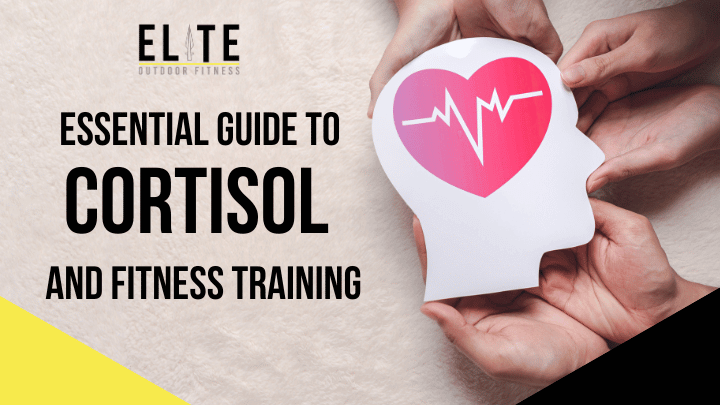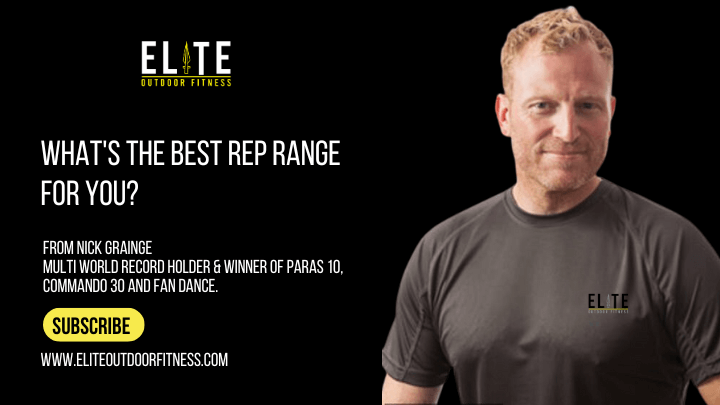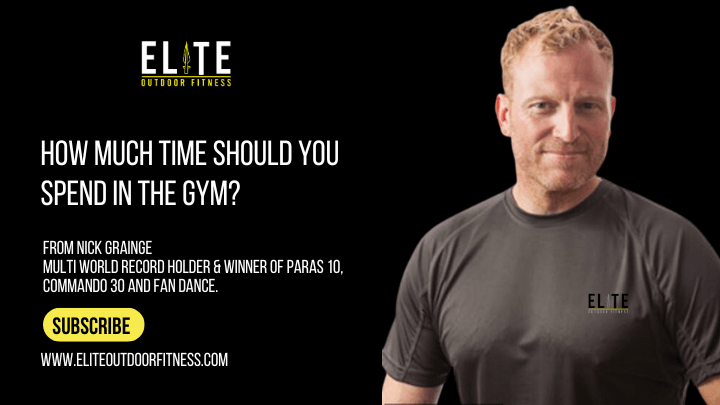Essential Guide to Cortisol and Fitness Training
Better sleep, improve recovery and maximise your training efforts by understanding how cortisol plays a critical role in your body's overall health in this essential guide.
Content
- Definition
- Cortisol and Stress
- Cortisol and Fitness
- Conclusion and Top Tips
Definition of Cortisol
Cortisol is a steroid hormone that your adrenal glands produce and release. Adrenal glands are the endocrine glands on top of the kidneys.
Hormones are chemicals that coordinate different functions in the body by carrying messages through the blood into organs, muscles, and other tissues influencing system responses, and cortisol is no different.
Cortisol is a type that suppresses inflammation in all body tissue and controls metabolism in muscles, fat, liver, and bones. Cortisol also affects sleep-wake cycles.
Cortisol has many functions, including:
- Helping control sleep–wake cycles
- Suppressing inflammation throughout the body
- Regulating blood pressure
- Regulating blood sugar
- Helping control the body’s use of fats, proteins, carbohydrates, and metabolism
- Regulation of the body’s stress response
Cortisol and Stress
Cortisol is widely known as a stress hormone. However, it’s important to understand there are many kinds of stress:
- Traumatic – Potentially life-changing events that include fear and helplessness.
- Chronic – Long-term stress from experiencing ongoing longer-term frustration and anxiety through illness, work, and life pressures.
- Acute – Short-term sudden danger situations where your short-term anxiety increases then reduce again.
Cortisol and Fitness
Cortisol plays a critical role in your body’s overall health. Understanding the function of cortisol can help you recognise the positive and negative effects of the hormone and how to better regulate it for better exercise performance and overall well-being.
Exercising with balanced rest and recovery can increase cortisol levels in the short term while and post-exercise but also helps to reduce your cortisol levels at night and helps you sleep better. Endurance training, however, can raise cortisol levels for several days or longer. In addition to this, if you have a high-stress work life, it can negatively impact your cortisol levels and lead to poor sleep over medium to long periods.
If your life is stressful, it is advised to keep most fitness sessions to within 1 hour to help with the recovery of cortisol levels to help aid your sleep.
To bring about higher levels of fitness, it is necessary to engage in endurance training because this hugely benefits exercise performance at all levels and is essential, so it is, therefore, vital to understand how you can train in such a way and also helps to lower your cortisol levels to aid in good sleep for recovery and mitigate against long term high cortisol levels which can be detrimental to health.
Steps that can help lower cortisol are:
- Regular morning Exercise
- Route in sleep
- No Caffeine intake within 90 minutes of waking
- Cold shower.
- Stretching
- Mindfulness
- Prebiotics and fibre
- Eating before bed or snacking
- Green tea
- Regular exercise (walking, Pilates, running, cycling, etc.) – Activities at lower levels of intensity and duration will help lower Cortisol levels medium and long term.
Morning exercise: Exercise causes a short-term spike in cortisol, and when you exercise in the morning, this coincides with your body’s natural daily fluctuation.
Routine Sleep 7-8 hours per night – Cortisol levels increase progressively throughout the night’s sleep from when you have been asleep for approximately 2-3 hours until around 8am. If you have high levels of cortisol pre-sleep, then this will affect your sleep, and you might wake in the night, as you would typically at 8am, due to a premature peak. Routine sleep, having a pre-sleep routine, going to bed, and waking at the same time will help with overall cortisol balance.
Caffeine in the morning: Not having your morning coffee within 90 minutes of waking will allow your body to naturally balance cortisol levels before it’s supercharged with the help of caffeine. Your cortisol levels will increase throughout sleep, and once you wake, it needs time to balance from the impact of the morning rush. Waiting a period before you supercharge it with caffeine has shown that you are less likely to have an afternoon drop in energy levels or feeling of needing a nap.
Cold shower: Having a cold or cool shower or bath pre-sleep can help to balance hormones and reduce cortisol. However, it is essential to note that you want to gently over time, get used to cold showers, and even reduce the temperature as you shower so that you do not shock the body too much, as this can lead to increased levels of cortisol.
Stretching: This helps increase serotonin levels and reduce cortisol levels, stabilise mood, increase circulation, remove unwanted waste within the body potentially caused by exercise, lower body stress, and give an overall feeling of wellness.
Mindfulness: Yoga, breathing, and meditation are ways to help lower cortisol. Any relaxation will help reduce anxiety, heart rate, overreaching hormone, and blood pressure. Having a routine a few times a day or even just before bed will help significantly reduce your Heart Rate variability, specifically cortisol, aiding in better sleep and recovery. Taking a light walk 30 mins before bed, sitting and breathing deeply in over 3 seconds, holding your breath between 3-10 seconds, and exhaling over 5 seconds for between 1-10 minutes can drastically help you reduce cortisol.
Prebiotics and fibre: These are linked to anxiety, depression, and stress response. Digestion of prebiotics and fibre but not within 3 hours of sleep has been shown to reduce cortisol levels.
Eating late: Eating within 2-3 hours of sleep will increase cortisol and blood sugar levels. Eat 3 hours before you sleep and nothing after.
Green tea– low levels of green tea has shown to help lower cortisol stress hormone levels. It is worth noting there are many short- and long-term benefits of drinking green tea. It’s wise to consume caffeine-free Green tea so as not to disrupt sleep much later.
Plan Implementing
Having a fitness plan is the key to fitness success. It provides goals, visualisation, drive, accountability, balance within your training, and much more.
Not knowing what to do and where to start is one of the main reasons people fail in their fitness progression or maintain their fitness and lose track of their goals. Hitting all the components of physical fitness and for the correct durations and intensity for that period of your fitness progression is very difficult for an experienced athlete, let alone a novice without a plan. This is where Elite Outdoor Fitness can help beginners and experienced athletes.
Progressions
To move forward in your fitness progression without overloading, getting injured, and being able to keep your motivation to train requires planning. Structured programs need a person to understand what to train, when, and how to train, and allow the body and mind to become more efficient and recover. Breaking training into 4 principal parts can help a person plan their weekly training.
Recovery / Long Slow Distance – Mitochondria training Heart Rate (HR) a percentage of max 65-75%
Efficiency training – Maximising Vo2, lactate Threshold, Mitochondria (also known as Maximising Aerobic Function- MAF) Heart Rate (HR) a percentage of max 75-82%
Lactate Threshold training – Blood lactate threshold efficiency Heart Rate (HR) a percentage of max 82-88%
VO2 Max– Max rate of oxygen used during stress (physical) Heart Rate (HR) a percentage of max 88%+
Conclusion and Overview
Planning your weekly training using the 4 principles above will allow a person to become capable. Capable of starting to delve into higher levels of Max HR, increase VO2 max, and a higher Blood lactate efficiency meaning you can go faster for longer.
Introducing training that emphasises conditioning of the components of physical fitness using cross-training, strength conditioning, mobility, and agility training will allow a person to become more robust and resilient to higher levels of physical and emotional stresses.
This will result in the overall conditioning of the body systems needed to be EOF fit. A level that will support a human being against a broader range of physical and emotional environmental factors, whether you are planning a race or going for a career promotion.
Summary Top Tips
Like with most things in life, too much or too little of something, such as cortisol, is not good for health, well-being, and fitness performance. Having the knowledge to implement daily routines that do not take too much time can help not only with the reduction of cortisol but in so many other ways, such as fighting diseases, reducing high blood pressure, and improving overall health with better recovery.
Tips for your daily routine:
- Wake at approximately the same time every day, no matter when you sleep.
- Wait to drink caffeine until you have been up for 90 minutes and only drink caffeine on the days you exercise and no caffeine drinks after 11am, as this will affect eventing sleep.
- Within the day, take 3 rests where you take time on your own, somewhere quiet; this can be at your desk or sitting in the garden and breathing, 3 seconds in, hold for 3-10 seconds, and breath out over 5 seconds for 1-10 mins so that it does not feel forced but relaxed.
- Engage in an activity or fitness session that increases your heart rate.
- Stretch for 10,20,30 seconds on Glutes, Hams, Calf’s, Quads.
- Eat some fibre at lunch time especially if you have been training hard.
- Eat your last food T minus 3 hours before sleep. Only drink water and fruit teas (no caffeine) after food and nothing within 90 minutes of sleep.
- Have a cool shower, stretch lightly, then sit and breathe (above routine) for as long as you want and go to sleep at the same time each night.
Outcome = Lower Cortisol levels than you would have had, better placed after your day to sleep, and benefit from the recovery.
More rest, better sleep, better NRV, and balanced hormone levels mean you can train with more loading and get more out of your training.
If you have any questions, need support or advice with your training, please get in touch.
Email – nick@eliteoutdoorfitness.com
Phone – +44 7855468103
Related Articles
If you've enjoyed this post why not try these related articles…



